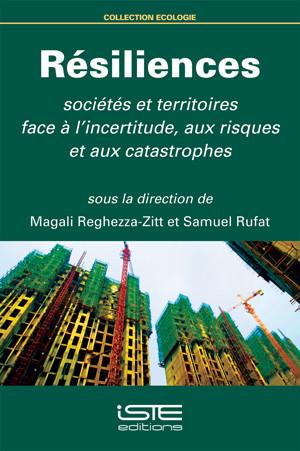
Since the beginning of the 21st Century, successive environmental, geopolitical, economic and social crises have brought about the idea of “resilience”. This concept is a regular topic of discussion in summits, frameworks, policies and is often used by governmental organisms to describe processes of recovery after a natural disaster. The concept of resilience offers the […]
Since the beginning of the 21st Century, successive environmental, geopolitical, economic and social crises have brought about the idea of “resilience”. This concept is a regular topic of discussion in summits, frameworks, policies and is often used by governmental organisms to describe processes of recovery after a natural disaster.
The concept of resilience offers the opportunity to rebuild infrastructures after a disaster and improve them to avoid the same degree of impact in the future. However, as an idea, resilience is difficult to define logistically. As a concept it raises many questions on its efficacy and its operational capability. These issues require a critical approach so as to define its social, spatial, practical and political implications.
This book is dedicated to outlining the idea of resilience, from its theory to its practical applications, all the while applying the due criticisms to the examples of it we can see today. Presenting a broad panel of theoretical approaches based on the recent results, while relying on a great diversity of case studies, this book offers a transdisciplinary perspective for researchers and policy makers, as well as individuals interested in disaster management.
1. Defining Resilience: When the Concept Resists, Magali Reghezza-Zitt, Serge Lhomme and Damienne Provitolo.
2. Resilience and Vulnerability: From Opposition Towards a Continuum, Damienne Provitolo and Magali Reghezza-Zitt.
3. Resilience: A Question of Scale, Géraldine Djament-Tran.
4. Resilience: A Systemic Property, Céline Pierdet.
5. From the Resilience of Constructions to the Resilience of Territories: A New Framework for Thought and for Action, Bruno Barroca.
6. Adapting Territorial Systems Through their Components: The Case of Critical Networks, Damien Serre.
7. Resilience and Global Climate Change, Claude Kergomard.
8. Organizational Resilience: Preparing and Over Coming Crisis, Richard Laganier.
9. (Re)Constructing Resilient Districts: Experiences Compared, Julie Hernandez and Stéphanie Beucher.
10. Resilience, Memory and Practices, Antoine Le Blanc.
11. Critique of Pure Resilience, Samuel Rufat.

